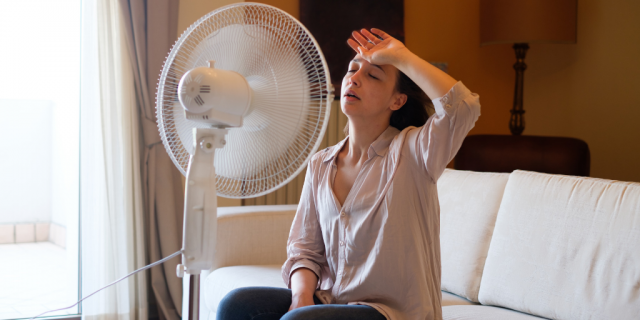Around the time the candles on the 50th birthday cake are blown out, women can expect to soon go through menopause. This is a natural stage in life that every woman shares. However, for some women, that stage can come earlier than expected. In the United States 5% of women will go through early menopause and 1% through premature menopause.
Early menopause is when you reach this stage before the age of 45. Premature menopause is before the age of 40. In both cases women having gone through early or premature menopause cannot get pregnant.
Since this change happens maybe a decade before expectations, it can be hard to know that it is actually occurring. Causes can vary and are important to determine since the source of menopause may be an underlying condition.
Causes of Early and Premature Menopause
Almost all of the causes of early and premature menopause are factors that cannot be controlled. The one exception is smoking. Women who smoke can experience menopause years before women who do not. They may also experience more severe symptoms.
Factors that are beyond control include family history, undergoing chemotherapy or radiation, undergoing a hysterectomy and having other health conditions.
Family History
Women with a family history of early or premature menopause are more likely to have early or premature menopause.
Cancer Treatments
Chemotherapy and/or pelvic radiation treatments can damage the ovaries and cause menstruating to stop permanently or just for a while. Not all women who have chemotherapy or radiation will go through menopause and the younger a woman is at the time of chemotherapy or radiation, the less likely she is to go through menopause.
Surgeries
Surgical removal of both ovaries may cause menopausal symptoms right away. Menstruating will stop after this surgery and hormone levels will drop quickly. This may result in strong menopausal symptoms, like hot flashes and less sexual desire.
Some women who have a hysterectomy can keep their ovaries. This means they will no longer menstruate, but menopause may not occur right away because the ovaries will continue to make hormones.
Health Conditions
Certain health conditions can cause early or premature menopause. Conditions include autoimmune diseases, HIV/AIDS, missing chromosomes and/or chronic fatigue syndrome.
Symptoms to Notice
Menopause occurs when a woman has not menstruated for 12 consecutive months.
“Menopause is defined as the stage of life when a woman stops having menstrual cycles due to decreased natural production of estrogen,” Taniesha Buffin, M.D., said “A woman is technically considered to be menopausal one year after absence of menstrual bleeding.”
If a woman believes she may be going through early or premature menopause, it’s important they see their physician as the cause may indicate an underlying condition.
A physician will ask about symptoms such as hot flashes, vaginal dryness, irregular periods and issues with sleeping. Some bloodwork may also be ordered.
Women who are experiencing all or some or even one of the symptoms of early or premature menopause should see their physician.
“Menopause is another natural process in the life cycle of women,” Buffin said. “The side effects and their severity varies for many women. There are many different management options, which include some non-hormonal options as well. This is certainly a time to focus on your health and openly communicate with your gynecologist or women’s health care provider.”
Buffin’s office is located at 2617 S. Elm Pl. in Broken Arrow. To schedule an appointment, call 918-394-2229. To make an appointment with any other Utica Park Clinic health care provider, call 918-579-DOCS (3627) or request an appointment online at https://uticaparkclinic.com/contact-us.

